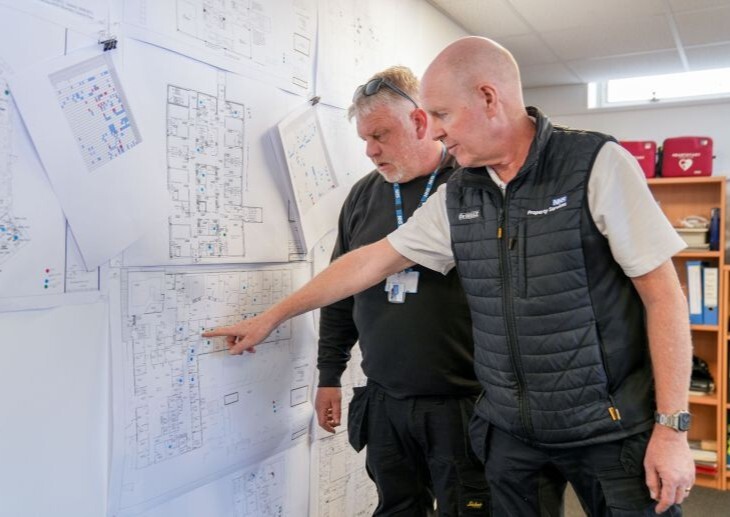As part of our focus on inclusion health, Healthcare Leader asked all ICBs about the groups they were working with. Julie Griffiths rounds up the current work taking place in 23 ICBs
One of the founding goals of the NHS was health care accessible to all, irrespective of socio-economic status, race, gender, or any other characteristic. But health inequalities persist and people who belong to certain groups of patients can encounter many barriers in trying to access health care. In particular, those on the edges of society can find it especially challenging such as the homeless or asylum seekers or those who have alcohol or drug dependency. The creation of inclusion health groups in England aims to address these problems.
Each ICB has the freedom to focus on the groups that require help depending on the local demographic. They also have flexibility in their approach. This feature looked at how three ICBs were working with health inclusion groups. Bedfordshire, Luton and Milton Keynes ICB is focusing on the Roma community while Sussex ICB is looking to help sex workers and Hertfordshire and West Essex ICB is working to provide care to the homeless.
So, what are other ICBs choosing as their inclusion health groups? Do some groups feature more prominently than others across England? And how are ICBs seeking to engage these often hard-to-reach patients?
Homelessness is the top group for ICB focus across England. Of the 23 ICBs who responded to our questions, 22 mentioned homelessness as an inclusion health group. The approaches vary.
Homelessness
NHS Buckinghamshire, Oxfordshire, Berkshire West ICB has an out of hospital care team, which includes the launch of a multi-agency team that provides step-up care and support for homeless residents in Oxfordshire. This team aims to prevent discharges on to the streets, which result in readmissions, and to avoid hospital attendance and admissions where health, care and support needs can be better met in the community.
Meanwhile, NHS West Yorkshire ICB is developing a dental access pilot across West Yorkshire for those who are homeless. They are also supporting palliative care for homeless people in Leeds and sharing learning and training opportunities across West Yorkshire with St Gemma’s Hospice.
Others are taking a multi-pronged approach.
NHS Surrey Heartlands Health and Care Partnership has a multidisciplinary equity team who bring health protection services to a range of inclusion health groups, one of which is homeless people. The team facilitate healthcare access for marginalised groups including Roma and traveller groups, refugees, and asylum seekers. They organise health clinics in accessible locations, connect people with other health services and the voluntary sector.
Surrey’s Changing Futures programme also focuses on a range of groups. It is an innovative, trauma-informed relational model of support that focuses on individuals facing challenges like homelessness, substance use, domestic violence, criminal justice involvement, and mental ill health. The service has been co-designed by people who have experienced multiple disadvantages and is delivered by an alliance of 11 voluntary community sector partners.
Refugees and asylum seekers
After homelessness, refugees and asylum seekers were the most common inclusion health group with 16 ICBs saying they were focusing efforts on helping these people.
NHS Humber and North Yorkshire ICB has several initiatives across the area to help this group of people. Refugee Action York provides wellbeing and recreational activities for asylum seekers and newly settled refugees. These include fortnightly health and wellbeing drop-in sessions with guest speakers/workshops on relevant topics such as domestic abuse, healthy eating, exercise, sexual health, dental health, and smoking cessation.
There is also cancer awareness raising aimed at refugees staying at the CityHotel, providing resources in different languages. And Migrant Health (East Yorkshire) offers bi-weekly drop-ins at Humber View with particular focus on smoking cessation. There has been a cancer and screening awareness session in East Yorkshire delivered to group of Syrian refugees at their conversation café in Bridlington and breast awareness sessions in York for Ukrainian refugees, in conjunction with York Breast Screening unit.
Of the five ICBs who did not mention refugees and asylum seekers, four said they were focusing on another transient groups, such as Roma or traveller communities. Dorset ICB, for example, has been collaborating closely with the Gypsy Roma Traveller community since the peak covid period. More recently, work has been going on for dentistry provision for this group with plans to seek views on hypertension/bp testing from the traveller community.
Sex workers are the next most common group for ICBs to be considering or to have already started working with. This group was mentioned by 12 ICBs with plans at varying levels of maturity.
Other groups
West Yorkshire ICB is an example where plans are in action as it has commissioned research in conjunction with University of Leeds and University of Huddersfield to grow its understanding of women in street-based sex work and to assess the effectiveness of its current models of care delivery. In addition, there is workforce training across West Yorkshire to tackle stigma.
Other groups that featured heavily in ICB plans were those involved in the justice system. ICBs with a focus on this group include NHS Lancashire and South Cumbria ICB and NHS Greater Manchester ICB.
Another common health inclusion group was those with alcohol or substance dependence. NHS Leicester, Leicestershire and Rutland ICB and NHS Cambridgeshire and Peterborough ICB were among those that plan to focus on this group.
Alongside groups that feature heavily across England, there are groups that are specific to certain areas of the country. For example, NHS Cornwall and Isles of Scilly ICB has undertaken outreach work for fishermen.
This work by Healthy Cornwall public health team includes mental health support, health checks and help to quit smoking, with a new strategic project being set up to improve health inequalities experienced by the fishing community. There are also plans to increase support to other inclusion groups who have the poorest health outcomes in the area, such as those in the farming community.
Similarly, NHS Suffolk and North East Essex ICB has identified coastal and rural communities as inclusion health groups. And NHS Coventry and Warwickshire ICB has chosen to focus on rural poverty and older people on low incomes in South Warwickshire.
Read our roundtable and learn more about inclusion health.






